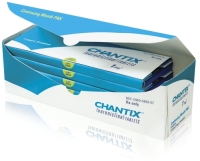Pharmaceutical giant Pfizer is recalling all lots of its popular smoking cessation drug Chantix nationwide, due to the presence of unacceptable levels of the carcinogenic chemical N-nitroso-varenicline. Chantix is the latest in a long line of drugs to be pulled from the market recently after the discovery of potentially harmful nitrosamines, which can cause cancer in people exposed to the chemicals at high levels over a long period of time. If you were prescribed Chantix as a smoking cessation aid and you have since been diagnosed with cancer, our consumer advocates can help. We are committed to assisting consumers harmed by dangerous pharmaceutical drugs, and we can help put you in touch with an experienced Chantix cancer attorney today.
Nitrosamine Found in U.S. Chantix Supply
Chantix (varenicline) is a prescription medication prescribed to help people quit smoking. The drug was approved by the FDA in 2006 and is meant to be taken short-term to block the receptors in the brain that are stimulated by nicotine and prevent cravings. However, emerging reports indicate that Chantix tablets contain higher-than-expected levels of N-nitroso-varenicline, a nitrosamine belonging to the same class of chemicals as the carcinogens found in previously recalled drugs like Zantac, valsartan, and metformin. These drugs were found to be unacceptably harmful to human health due to the presence of a nitrosamine called N-Nitrosodimethylamine (NDMA), which has been linked to pancreatic cancer, colorectal cancer, stomach cancer, kidney cancer, and other types of cancer.
Nitrosamines are a class of organic compounds known for their potential carcinogenicity and their ubiquitous presence in the environment. The chemicals are found at low levels in water and some foods, including certain dairy products, vegetables, and cured meats. And while most everyone is exposed to low levels of the chemicals at some point during their lifetime, prolonged exposure to high levels has been linked to an increased risk of many different types of cancer, which may come as a surprise to people taking Chantix to quit smoking and live a healthier lifestyle.
Despite Pfizer’s admission in a September 2021 Chantix recall announcement that “Long-term ingestion of N-nitroso-varenicline may be associated with a theoretical potential increased cancer risk in humans,” the company maintains that “there is no immediate risk to patients taking this medication,” and that “the health benefits of stopping smoking outweigh the theoretical potential cancer risk from the nitrosamine impurity in varenicline.” These claims by Pfizer conflict with decades of research linking exposure to nitrosamines to an increased risk of cancers and patient deaths.
Pfizer Recalls All Chantix Lots Nationwide
The Chantix recall saga began earlier this summer, when laboratory testing uncovered the presence of unacceptable levels of the nitrosamine impurity N-nitroso-varenicline above the intake limit established by the FDA. As a result, Pfizer stopped global distribution of Chantix in June 2021, and in July 2021, the drug maker recalled more than a dozen lots of the smoking cessation drug, citing the presence of N-nitroso-varenicline at levels above the FDA’s acceptable intake limit. The following month, Pfizer recalled additional lots of Chantix over continued concerns about the nitrosamine impurity. Finally, on September 16, 2021, Pfizer announced that it was expanding the nationwide Chantix recall to include all lots of varenicline 0.5 mg and 1 mg tablets as a “precautionary measure,” due to the presence of N-nitroso-varenicline, and because “alternative suppliers [of Chantix] have been approved in the United States.”
Varenicline Recall Causes Chantix Shortage in U.S.
The Chantix recall has created a drug shortage in the U.S., a fact that prompted the FDA to allow Apotex to import Apo-Varenicline from Canada, which reportedly contains N-nitroso-varenicline up to the FDA’s interim acceptable intake limit, in order to maintain the varenicline supply in the U.S. The FDA stated in a September 17, 2021 press release, “To lessen the impact to patients from a drug shortage due to this ongoing recall, FDA will not object to certain manufacturers distributing varenicline tablets containing N-nitroso-varenicline above FDA’s acceptable intake limit of 37 ng per day but below the interim acceptable intake limit of 185 ng per day until the impurity can be eliminated or reduced to acceptable levels.”
Long-Term Chantix Use May Increase Cancer Risk
According to Pfizer, the company has received no reports of adverse events associated with the Chantix recall. However, it is possible that Chantix users diagnosed with cancer are just now discovering the possible connection between their cancer diagnosis and their use of Chantix. After all, the makers of Zantac, valsartan, metformin, and other medications that have been recalled in recent years due to the presence of nitrosamines like NDMA are now facing lawsuits filed by former users who allege that exposure to the carcinogenic chemicals in their drugs caused them to develop cancer. If you or someone you love has been diagnosed with cancer that you believe was caused by exposure to N-nitroso-varenicline in Chantix, do not hesitate to discuss your legal options with a reputable Chantix cancer attorney. You may qualify for financial compensation, which you can pursue by filing a Chantix cancer lawsuit against Pfizer.




